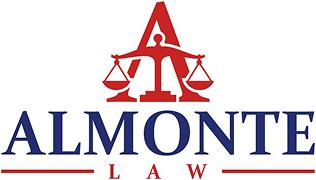Health Care Fraud in Texas: How Federal Prosecutors Build a Case

Texas is one of the most aggressively prosecuted states for health care fraud. Federal authorities are devoting more resources than ever to investigating doctors, nurses, clinics, billing companies, and even patients for schemes involving Medicare, Medicaid, TRICARE, and private insurers.
If you’re under investigation, have received a target letter, or suspect that federal agents are looking into your practice, it’s critical to understand how these cases are built—and how a defense strategy should begin immediately.
Why Is Health Care Fraud a Federal Priority in Texas?
Federal agencies like the Department of Justice (DOJ), Office of Inspector General (HHS-OIG), and FBI are under pressure to crack down on fraudulent billing and kickback schemes, particularly in major metro areas like San Antonio, Houston, Dallas, and McAllen.
In Texas, the most commonly charged federal health care fraud offenses include:
- San Antonio Health Care Fraud Defense Attorney18 U.S.C. § 1347 – Health Care Fraud
- 42 U.S.C. § 1320a-7b(b) – Anti-Kickback Statute Violations
- 18 U.S.C. § 371 – Conspiracy to Commit Fraud
- 18 U.S.C. § 1035 – False Statements Related to Health Care Matters
- 18 U.S.C. § 1349 – Attempt and Conspiracy
How Federal Prosecutors Build a Health Care Fraud Case
Federal prosecutors typically spend months—sometimes years—building a health care fraud case before an arrest is ever made. These investigations are often data-driven and involve multiple agencies working together.
Here’s how the process typically unfolds:
1. Data Mining and Billing Anomalies
Prosecutors and analysts look for outliers in claims data:
- High billing volumes
- Unusual frequency of procedures
- Geographic inconsistencies
- Upcoding or unbundling
- Billing for deceased or non-existent patients
2. Audit and Subpoenas
Before indictments, providers may receive:
- Civil Investigative Demands (CIDs)
- HIPAA subpoenas
- Requests for patient records and internal communications
3. Cooperators and Whistleblowers
Insiders—such as former employees or business partners—often cooperate in exchange for reduced charges or whistleblower rewards under the False Claims Act (FCA).
4. Undercover Operations or Surveillance
Federal agents may use:
- Wiretaps
- Controlled calls
- Recorded conversations
- Surveillance footage at clinics or pharmacies
5. Grand Jury and Indictment
By the time you learn you’re a target, a federal grand jury may already be hearing evidence. A target letter or raid means they believe you’re central to the scheme.
Common Types of Health Care Fraud in Texas
- Billing for services not rendered
- Medically unnecessary procedures
- Fake patients or “rent-a-patient” schemes
- Kickbacks for referrals (labs, home health, DME)
- Telemedicine fraud involving mass billing
- Prescription fraud tied to opioids or compounding pharmacies
What to Do If You Suspect You’re Under Investigation
If you’ve received a subpoena, target letter, or even an informal request from a federal agent, follow these steps:
- Do not speak to investigators without an attorney.
- Preserve all records. Deleting files or messages may constitute obstruction.
- Retain experienced federal counsel—preferably someone who has worked inside the DOJ.
- Begin preparing a defense narrative early. The first impression you make on prosecutors can shape the outcome of your case.
Why Experience Matters: Former Federal Prosecutors on Your Side
Robert Almonte is a former federal prosecutor who has handled health care fraud cases from the other side. He understands how the DOJ builds these cases.
From pre-indictment negotiations to jury trial and sentencing mitigation, we provide aggressive, strategic defense at every stage of the process.
Serving Clients Across Texas
We represent medical professionals, executives, and billing staff across Texas—including in:
Whether you’re under investigation or already indicted, we’re ready to step in.
Call Now for a Confidential Consultation
If you are facing a health care fraud investigation or indictment in Texas, contact Almonte Law at 210-866-3233 or use our Contact Form to schedule a confidential case review with a federal health care fraud attorney in San Antonio.







